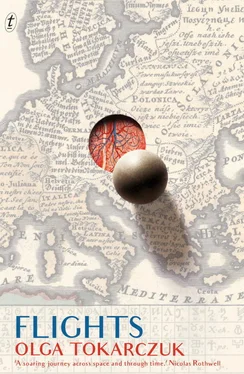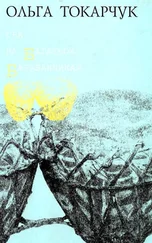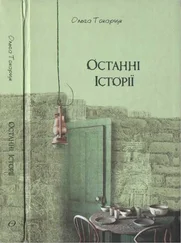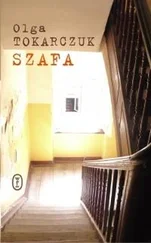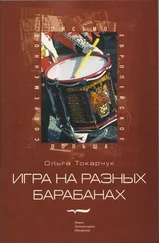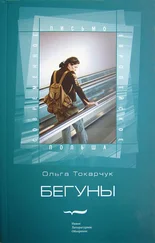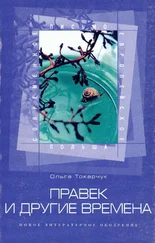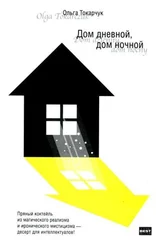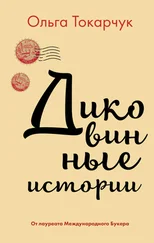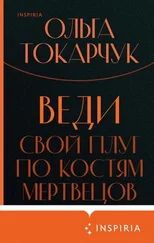This ocean of lead gathers heavily inside her and becomes unbearable and runs into a gesture one of the girls makes, wanting to tame the impatient horse – she jerks his head down by his bridle to force him to be still. And when the horse tries to pull away she cracks a whip over his back and screams, ‘Stay, goddammit! Hold still!’
And now Annushka’s blinis with sour cream fall from her hand, and she has launched at the girl fighting the horse, begun attacking her blindly with her fists. ‘Leave him alone!’ she shrieks, her voice straining in her throat. ‘Leave him alone!’
It takes a second for the startled kids to react, to try to pull off this woman in the checkered coat, suddenly deranged, but by now another woman is rushing to her aid, some shrouded lunatic all dressed in rags, and both of them are trying to take away the reins from the girl and to push her away. The girl whimpers, shielding her head with her hands – she hadn’t expected this furious attack. The horse kicks, whinnies and gets away from the girl, running down the middle of the Arbat, spooked (it’s a good thing the promenade is almost empty at this hour); the clatter of his hooves echoes off the walls of the buildings and brings to mind a street fight, a strike; people’s windows open. But now at the end of the street two policemen appear, walking serenely, probably talking about video games – there’s nothing happening – but then they see the commotion, swing into action, grabbing their truncheons, taking off at a run.
‘Sway,’ says the shrouded woman. ‘Move.’
They’re sitting at the police station awaiting their turn for the flushed and disagreeable policeman to take down their statements.
‘Sway.’ And for these couple of hours she chatters in a kind of frenzy, no doubt scared. Adrenaline has awakened the shrouded woman’s tongue. She whispers directly into Annushka’s ear so that no one else is privy to their conversation – not the man who was robbed, not the two young dark-skinned whores, not the man with the wounded head holding a bandage in place with one hand. Meanwhile Annushka cries, tears spilling down her cheeks incessantly, though her reserves will run out soon, it’s clear.
Then, when their turn comes, the red-faced policman shouts over his shoulder to someone in the other room:
‘It’s that runaway woman.’
The voice from in there answers:
‘That one you can just let go, but write the other one up, for disturbing the peace.’
And to the shrouded woman the policeman says:
‘Next time we’re going to ship you out of town, a hundred kilometres out, got it? We don’t want any cult members around here.’
Meanwhile he takes Annushka’s I.D. from her, and as though he couldn’t read he also has her repeat her first name, patronymic and last name, and her address, he asks for her address. Annushka touches the tabletop with her fingertips and, partially closing her eyes as though reciting a poem, gives him her information. She repeats her address twice:
‘Kuznetskaya 46, apartment 78.’
They release them separately, an hour apart, first the shrouded woman, so by the time Annushka gets out, there is no trace of her. Nothing surprising about that, the cold is horrendous. She meanders around the station, her legs urge her on, would carry her down these broad streets off somewhere to the source of all streets, to where they emerge from the hilly outskirts, and past them, to where new and different vistas open up – of the great plain that plays with its breath. But Annushka’s bus is arriving, she runs up and gets on it just in time.
People are in motion already, the streets overtaken by morning movements even though the sun is not yet out. Annushka’s on the bus for a long time, reaching the city’s edge, and then she’s standing at the base of her apartment block, looking up at her windows, all the way up. They’re still dark, but when the sky starts to get lighter she sees that in the kitchen of her apartment there is a light that switches on, and she heads for the entrance.
WHAT THE SHROUDED RUNAWAY WAS SAYING
Sway, go on, move. That’s the only way to get away from him. He who rules the world has no power over movement and knows that our body in motion is holy, and only then can you escape him, once you’ve taken off. He reigns over all that is still and frozen, everything that’s passive and inert.
So go, sway, walk, run, take flight, because the second you forget and stand still his massive hands will seize you and turn you into just a puppet, you’ll be enveloped in his breath, stinking of smoke and fumes and the big rubbish dumps outside town. He will turn your brightly coloured soul into a tiny flat one, cut out of paper, of newspaper, and he will threaten you with fire, disease and war, he will scare you so you lose your peace of mind and cease to sleep. He will mark you and record you in his records, provide you with the documentation of your fall. He’ll occupy your thoughts with unimportant things, what to buy, and what to sell, where things are cheaper and where they’re more expensive. From then on you will worry over trifles – the price of petrol and how that will affect the payments on our loans. You will live every day in pain, as though your life were a sentence. But for what crime? Committed when and by whom? You’ll never know.
Once, long ago, the Tsar tried to reform the world but he was vanquished, and the world fell right into the hands of the Antichrist. God, the real one, the good one, became an exile from the world, the vessel of divine power shattered, absorbed into the earth, disappearing into its depths. But when he spoke in a whisper from his hiding place, he was heard by one righteous man, a soldier by the name of Yefim, who paid attention to his words. In the night he threw away his rifle, took off his uniform, unwrapped his feet and slid his boots off. He stood under the sky naked, as God had made him, and then he ran into the forest, and donning an overcoat he wandered from village to village, preaching the gloomy news. Flee, get out of your homes, go, run away, for only thus will you avoid the traps of the Antichrist. Any open battle with him will be lost outright. Leave whatever you possess, give up your land and get on the road.
For anything that has a stable place in this world – every country, church, every human government, everything that has preserved a form in this hell – is at his command. Everything that is defined, that spans from here to there, that fits into a framework, is written down in registers, numbered, testified to, sworn to; everything collected, displayed, labelled. Everything that holds: houses, chairs, beds, families, earth, sowing, planting, verifying growth. Planning, awaiting the results, outlining schedules, protecting order. Rear your children thus, since you had them without understanding, and set out on the road; bury your parents, who brought you into this world without understanding – and go. Get out of here, go far away, beyond the reach of his breath, beyond his cables and wires and antennas and waves, resist the measurements of his sensitive instruments.
Whoever pauses will be petrified, whoever stops, pinned like an insect, his heart pierced by a wooden needle, his hands and feet drilled through and pinned into the threshold and the ceiling.
This is precisely how he died, Yefim, he who rebelled. He was captured and his body nailed to the cross, immobilized like an insect, on display for human and inhuman eyes, but most of all inhuman eyes, which take the most delight in all such spectacles; hardly a surprise that they repeat them every year and celebrate, praying to the corpse.
This is why tyrants of all stripes, infernal servants, have such deep-seated hatred for the nomads – this is why they persecute the Gypsies and the Jews, and why they force all free peoples to settle, assigning the addresses that serve as our sentences.
Читать дальше
